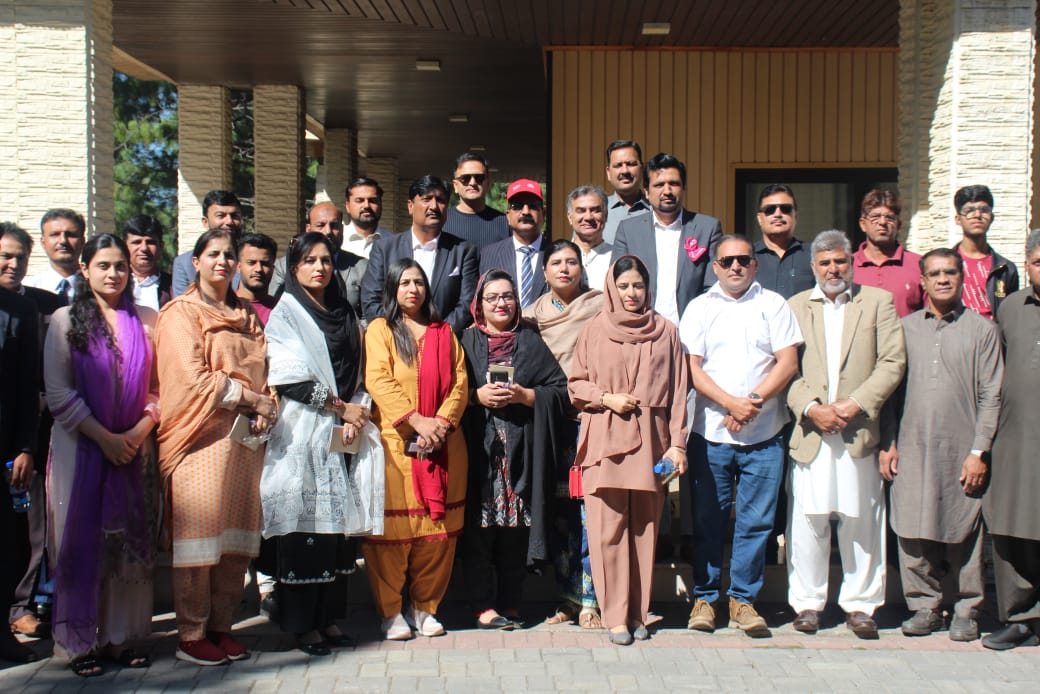
Spokesman Report
Murree : The prevalence of non-communicable diseases (NCDs) is escalating in Pakistan. Alarming statistics reveal that over 41% of adults in Pakistan are either obese or overweight. Additionally, more than 33 million people are currently living with diabetes, with another 10 million on the verge of developing the disease. Without immediate policy interventions, the number of individuals with diabetes is projected to surge to 62 million by 2045. After every minute one Pakistani experiences a heart attack and after two and half minute, one Pakistani dies due to heart disease. As per International Diabetes Federation, approximately 1100 deaths in Pakistan are attributed to diabetes and its complication, every day. Unhealthy diet is among the major risk factors of heart, diabetes, obesity, kidney and many other fatal non-communicable diseases. Ultra-processed food and beverage products (UPPs), often laden with excessive sugar, salt, and trans-fats, significantly contribute to this health crisis. An unhealthy diet stands as a major modifiable risk factor for NCDs. The absence of evidence based policies like front of pack nutrition labelling and warning signs on ultra-processed foods is among the primary reasons that people are unable to adopt the healthy food choices. These concerns were highlighted during a press briefing at local Hotel in Murree.
Sana Ullah Ghumman, General Secretary and director operation PANAH, stated, “The annual cost of managing diabetes soared to over USD 2,640 million in Pakistan in 2021. Ultra-processed food and beverage products particularly sugary drinks and junk foods are major contributors to diabetes, heart disease, cancer, kidney failure, and other chronic diseases.” He emphasized the urgent need for policy action regulatory bodies to address the increasing risk of diabetes and other NCDs in Pakistan. He added that Pakistan Standards and Quality Control Authority is the national body responsible for development of national standards and regulations to ensure access to healthy diet in the country.
Mr. Sana Ullah said that our successful campaign in 2023, led to the imposition of a 20% Federal Excise Duty (FED) on sweetened beverages and juices. Despite substantial interference from the sugary drinks industry, government decided to maintain this tax during finance bill 2024-25 which was step toward right direction. “However, FBR should consider progressively increasing these taxes to minimum of 50 percent of the retail price. The revenue collected from these taxes may be allocated to increase the access of healthy diet to consumers on affordable prices.”
Sana Ullah Ghumman, General Secretary of PANAH, highlighted the association’s two prong approach of raising public awareness about modifiable NCD’s risk factors and collaborating with policymakers to formulate evidence based policies to reduce consumption of ultra-processed foods.
Mr. Tariq Virk, president of RIUJ(Rawalpindi Islamabad Union of Journalist) said, “we must prioritize policies like front of pack nutrition labelling and warnings signs on ultra-processed food and beverage products and increasing taxes on sugary drinks to counter the menace of growing chronic diseases in Pakistan, killing hundreds of people every day in the country.”





